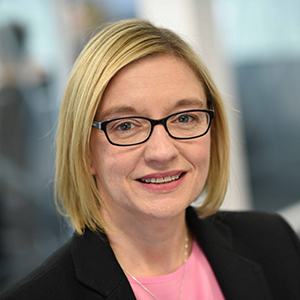We support great ideas that have the potential to deliver meaningful change in health and care.
We connect the right people to develop and deliver breakthrough products, processes and technologies to bring the best innovations in health and care to those who will most benefit. We work on technology-enabled change programmes and improve care pathways alongside clinicians and managers and we support the health and life sciences industry to position its products for use across the healthcare system.
Our national network
The Health Innovation Network is the innovation arm of the NHS and the collective voice of the 15 health innovation networks across England.
Health innovation Networks bring together the NHS, industry, academic, third sector and local organisations. Our collaboration ensures innovations, improvements and best practice benefit more patients faster.
In 2023/24 our collective efforts helped to leverage £475 million of external funding nationally for the UK’s health and life sciences industry.

Innovation can only deliver meaningful change for patients if adopted into healthcare services. That is why we connect innovators and healthcare providers to identify solutions to reach the people, places and problems where they bring most benefit.
Dr. Louise Jopling, Commercial Director, Health Innovation East
Impact story: Lumi Nova
Lumi Nova is a therapeutic digital intervention for childhood anxiety, developed by BfB Labs. Created as an immersive mobile game, Lumi Nova uses two aspects of Cognitive Behavioural Therapy (CBT) – psychoeducation and exposure therapy – to help children aged seven-12 years old facing difficulties with anxiety.
To measure the potential impact of Lumi Nova, Health Innovation East were co-applicants with Norfolk and Suffolk NHS Foundation Trust (NSFT) and BfB Labs on a successful grant application for £150k from NIHR through their Invention for Innovation (i4i) programme. The funding supported a real-world evaluation of Lumi Nova, including analysing children’s outcomes as well as the potential impact of Lumi Nova in addressing health inequalities.
Health Innovation East, NSFT and BfB Labs won the ‘outstanding contribution to population health through innovation’ award at the Innovate Awards 2023.
Impact story: Charco Neurotech
CUE1 is a wearable device, developed by a team of engineers, doctors and neuroscientists to help people with Parkinson’s.
Health Innovation East has been working with Charco Neurotech since 2020. We have helped fund and commission an evaluation of CUE1 to help with early conversations with commissioners and providers. The team has since continued to support CUE1’s route-to-market journey by delivering two business development workshops with the Charco team and NHS clinicians, to understand and validate CUE1’s funding streams and alignment to NHS key policy levers, as well as how the device fits into care pathways. As a result, in April 2023 Addenbrooke’s Hospital became the first hospital in the world to trial the device on inpatients with Parkinson’s.
Get in touch to find out how we can work with you.
Our commitment to celebrating diversity
Diversity isn't a box to check, it is a strength to build upon which makes us better. Learn about our diversity pledges.
Read more